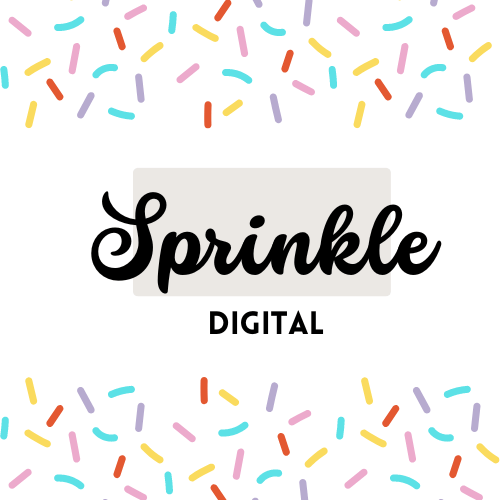Choosing a url for your blog is one of the most important decisions you’ll make when creating a website. Your website domain name is the first thing people will see and it will represent your brand, so it’s important to choose a url for your blog that is both memorable and relevant to your website.
When I was choosing a domain name for a personal website, I wanted something that was memorable, easy to spell, and reflected the content of my site. It took me weeks to come up with the perfect name, but it was worth the effort.
Since then, I’ve learned a lot about what makes a great domain name, and I want to share that knowledge with you.
Defining Domain Names
A domain name is basically the address of your website on the internet. It’s the unique name that identifies your website and distinguishes it from all the other websites out there. Think of it as the street address of your website. Just like how you need a physical address to receive mail, you need a domain name to receive visitors to your website.
For example, the domain name of this blog is “sprinkledigital.com”. When you type that into your web browser, it takes you to this blog homepage. Similarly, when you choose a domain name for your website, it becomes your website’s address on the internet.
How to Choose a Url for your Blog
When it comes to choosing a url for your blog, it’s important to pick something that is both memorable and unique. After all, your domain name is the first thing that potential readers will see, and it’s what they will use to remember and find your blog. Here’s a list of tips for choosing a domain name:
#1 Start with your Niche
First, consider your niche and target audience. Your blogging domain name should reflect what your blog is about and who it’s for. If you’re blogging about food, for example, your domain name could include words like “food,” “recipes,” or “cooking.”
If you’re writing about food, for example, you might want to include words like “food” or “recipes” in your domain name. Or food names and ingredients.
If your blog is aimed at a specific group, like moms or college students, consider including that in your domain name too.
#2 Use a Thesaurus
If you’re struggling to come up with ideas, try using a thesaurus to find synonyms for your keywords.
And no I don’t mean an old school thesaurus where you’re flicking through pages. Use one like this.
This can help you find words that are similar in meaning but may be more unique or memorable than the original keyword.
#3 Use Keywords
If possible, use keywords in your domain name to help improve your blog’s visibility in search engines and to make it easier for people to find your blog. Basically, you’ll want to include relevant keywords that describe your blog’s content and niche. This will make it easier for your readers to find your blog when they’re searching for information on a particular topic. However, don’t overdo it. You don’t want your blogging domain name to sound spammy or unnatural.
#4 Keep it Simple and Easy to Remember
Your blog name should be simple and easy to remember. Avoid using words or phrases that are hard to spell or pronounce. How easy for you is to type your domain name? Choose a name that is short, catchy, and easy to remember. This will make it easier for your readers to find and remember your blog.
#5 Ditch the Hyphens and Numbers
Avoid using hyphens or numbers when choosing a blog name, as these can make your blogging domain name more difficult to remember and type.
#6 Don’t Use Double Letters
Don’t use the same letter twice in a row. This can lead to people making typos and ending up on the wrong website. For instance, if your domain is digitallion.com, people might accidentally type in “digitalion.com” and end up somewhere else. Plus, if your domain name is easy to type and remember, it will be more memorable and help build your brand.
#7 Match the URL with your Blog
It’s also important to consider the URL for your blog. Your URL should match your blog name as closely as possible, making it easier for readers to find you online. For example, if your blog name is “The Fitness Queen,” your URL should be something like “thefitnessqueen.com.”
#8 Get Creative with Wordplay
Wordplay can be a great way to create a memorable and unique blog name. Try combining two words in a clever or unexpected way or using puns or other forms of wordplay to create a catchy name. Just make sure that your wordplay is still relevant to your niche and doesn’t confuse your readers.
Some examples of bloggers:
Makingsenseofcents.com
EonomiesofKale.com
#9 Picture the Long term
Make sure to consider the brand and marketability of your name when choosing a domain name for your blog. This all comes down to your intention. What is the purpose of your blog? To market your own products and reach your own community? If so, then including your name as the domain name could be a good idea.
On the other hand, if your intention is to create a website to grow and sell it, then having BillyBob.com would not cut it. You’d want something more generic that relates to your niche.
#10 Don’t Limit Yourself
Don’t choose something that is too specific for your niche, unless you’re absolutely sure. For example, you could begin by thinking you want to write about stilettos only but then later realize you want to expand not just to stilettos but sneakers and sandals, except now you’re stuck with stilettos.com. So consider your niche.
#11 Check for Availability
Finally, make sure your blog name is available as a domain name. You can use Hostinger or GoDaddy to check if your desired domain name is available. If it’s not, you may need to come up with a different blog name or consider using a different domain extension like .net or .org. However, based on my experience it’s best to stick with .com.
I also like to plug it into social media to see if it’s available. It’s not a deal breaker so to say, but it’s always nice when the username is available.
#12 Avoid Trademark Infringement
Once you have a list of potential blogging domain names, it’s important to avoid trademark infringement.
Check to see if there are any trademarks or registered names that are similar to your chosen domain name. This can help you avoid legal issues down the road. You can search for trademarks here to see if it’s already trademarked :
Do your research and make sure your domain name is unique. You don’t want to accidentally choose a domain name that is already taken or too similar to another website.
#13 Get Inspired by Social Media
When I was choosing a blog name, I would go through social media accounts and type a keyword to see how people were using it.
I find that social media names are even more taken than domain names, so checking social media names is great for inspiration. Personally, I have used Instagram in the past to get ideas.
Type your keyword, click on a popular post in your feed, then look at all the usernames and even go inside and look at the usernames of people who commented and liked that post.
It taught me:
What(Sue)didNext
TheRealSue
(Sue)Talks
#14 Use a Domain Name Generator
If you’re struggling to choose a domain name for your blog, use a domain name generator. These tools can help you brainstorm ideas and come up with something that fits your blog.
When I was trying to come up with a domain name for my website, I found it difficult to think of something unique and catchy. That’s when I stumbled upon domain name generators. These tools can be a great help when you’re stuck and need some inspiration.
Domain name generators work by taking a keyword or phrase that you provide and generating a list of available domain names based on that keyword. Some generators will also suggest alternative keywords and phrases that you can use to come up with even more ideas.
Here are a few free domain name generators:
| Domain Name Generator | Features |
| DomainWheel | Uses keywords, customizable filters, suggests rhyming words |
| Nameboy | Uses keywords, customizable filters, suggests related words |
| Namelix | AI-powered, customizable filters, saves name ideas |
#15 Best for Last: GPT Domain Name Generator
I’ve recently played around with ChatGpt to help come up with domain names and the results are wild. I mean better than any domain generator I have used.
Domain generators tend to be limited to the keyword you type but chatgpt actually recommends similar keywords related to your niche. And it’s super well done! No more days haunting you about choosing a domain name for a personal website. It’s wack.
Find out how I do it here with the specific prompts I use: How to Use ChatGpt to Choose a Domain Name [Free Domain Generator AI]
#16 Good Domain Name Examples
Choosing a domain name can be a daunting task, but looking at successful domain names can provide inspiration and guidance. Here are some examples of effective blogging domain names:
- ThePioneerWoman.com – A personal blog with a name that suggests a strong, independent woman who is forging her own path.
- NerdFitness.com – A fitness blog with a name that appeals to a specific audience and suggests a fun, quirky approach to health and wellness.
- SmartPassiveIncome.com – A business and finance blog with a name that suggests a focus on making money in a smart and sustainable way.
Found this guide on How to Choose a Url for your Blog helpful? Pin it now and read it again later

Save or Share!

